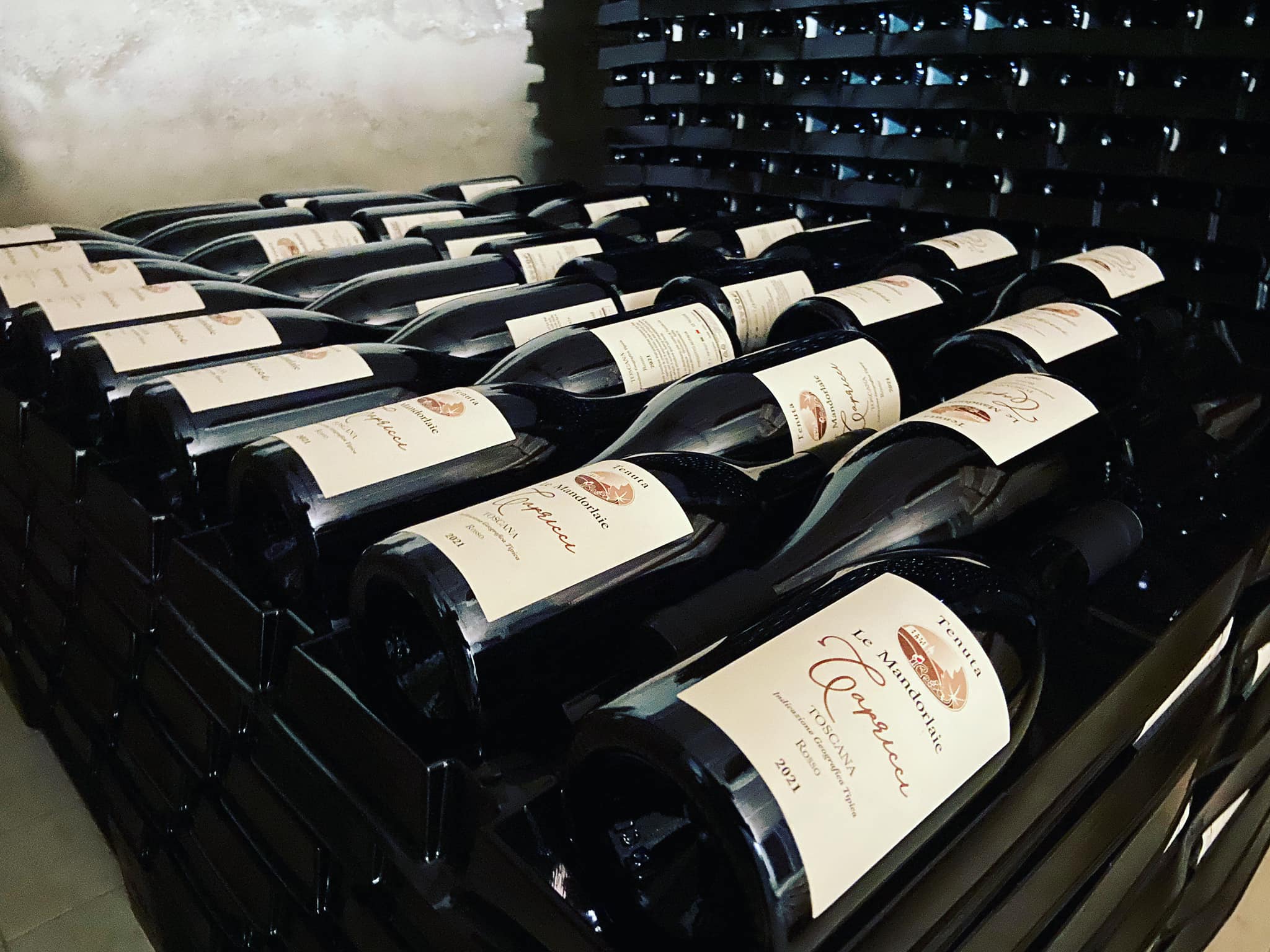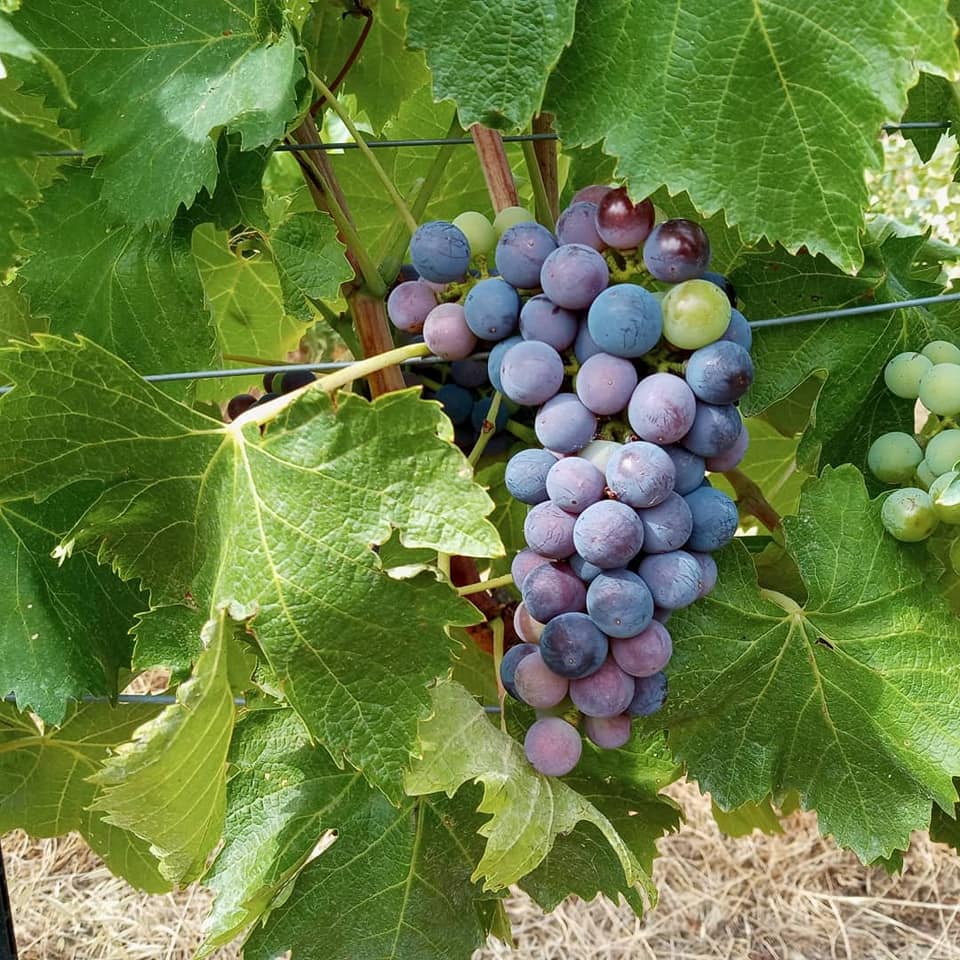
Creating a sustainable vineyard in Tuscany

Sustainability in viticulture involves a holistic approach that considers ecological, social, and economic factors. The goal is to create a vineyard that not only produces high-quality grapes and wine but also contributes positively to the environment and the community. Here are the key components to consider in your journey towards a sustainable vineyard:
Site Selection and Design
Choosing the right location for our new vineyard was the first step in ensuring sustainable viticulture. We considered factors such as climate, soil type, slope, and proximity to our water sources. We selected a site that minimized erosion, runoff, and the need for excessive irrigation. Additionally, we designed the vineyard layout to maximize efficiency, taking into account sun exposure, wind patterns, and biodiversity corridors.
Soil Management
We understand that healthy soil is the foundation of a sustainable vineyard. Implement practices such as cover cropping, mulching, and composting to enhance soil fertility and structure. Avoid excessive tilling, which can lead to erosion and loss of organic matter. Conducting regular soil tests to monitor nutrient levels and adjust fertilization accordingly and we always consider the use of organic or biodynamic farming practices, which focus on us building soil health through natural processes.
Water Conservation
Efficient water management is crucial for sustainability, especially in regions prone to drought. Implement drip irrigation systems to deliver water directly to the base of the vines, minimizing waste. Install rainwater harvesting systems to capture and store rainwater for irrigation. Utilize technologies such as soil moisture sensors to optimize irrigation schedules. Additionally, consider planting cover crops that help retain soil moisture and reduce the need for irrigation.
Pest and Disease Control
Integrated Pest Management (IPM) is a key component of sustainable vineyard practices. Focus on prevention through measures like planting disease-resistant grape varieties and promoting biodiversity. Use natural predators to control pest populations, and employ biological controls, such as pheromone traps, to manage pests. Minimize the use of synthetic pesticides, opting for organic alternatives when necessary. Regular monitoring and early intervention are crucial for effective pest and disease management.
Biodiversity and Habitat Conservation
Promoting biodiversity in and around the vineyard is essential for a sustainable ecosystem. Maintain natural habitats, plant cover crops, and create wildlife corridors to support a diverse range of flora and fauna. Consider incorporating beehives to encourage pollination and support local bee populations. Biodiversity not only contributes to ecosystem health but also helps control pests naturally.
Energy Efficiency
Reducing energy consumption contributes to both environmental and economic sustainability. Invest in energy-efficient equipment, such as solar-powered pumps and LED lighting. Consider renewable energy sources, such as solar panels or wind turbines, to generate power for vineyard operations. Implement energy conservation practices, such as optimizing equipment usage and scheduling tasks during off-peak energy hours.
Waste Management
A sustainable vineyard minimizes waste and adopts practices for responsible disposal. Implement recycling programs for materials like plastic, glass, and cardboard. Compost organic waste, such as grape pomace and vine prunings, to create nutrient-rich soil amendments. Consider repurposing or recycling materials used in vineyard infrastructure to reduce the environmental impact of waste.
Social Responsibility
Sustainability extends beyond environmental considerations to encompass social responsibility. Prioritize the well-being of vineyard workers by providing fair wages, safe working conditions, and access to healthcare. Engage with the local community through outreach programs, educational initiatives, and support for local businesses. Foster a positive relationship with neighbors, addressing any concerns related to the vineyard’s impact on the community.
Certification and Standards
Obtaining certification from recognized sustainability programs adds credibility to your vineyard’s commitment to sustainability. Organizations such as SIP (Sustainability in Practice) offer certification programs tailored to vineyards. Adhering to these standards demonstrates your dedication to sustainable practices and provides assurance to consumers
Becoming a sustainable vineyard requires a multifaceted approach that addresses environmental, social, and economic aspects. By focusing on soil health, water conservation, biodiversity, energy efficiency, and social responsibility, you can create a vineyard that not only produces exceptional grapes and wine but also contributes positively to the planet and the community. Embracing sustainability is an ongoing commitment, and staying informed about new technologies and best practices will ensure the continued success of Tenuta Le Mandorlaie, our sustainable vineyard.
Our IGT Toscana Wine Products
-
Capricci Toscana IGT Rosso Tuscany Red Wine
Capricci Toscana IGT Rosso
Original price was: €16.80.€15.00Current price is: €15.00. inc. Sales tax
-
Capricci Toscana IGT Rosso 6 bottles
Capricci Toscana IGT Rosso
Original price was: €100.80.€90.00Current price is: €90.00. inc. Sales tax


